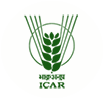Disease selection: the way disease changed the world
Disease selection: the way disease changed the world [electronic resource]
Edited by R. Webber.
- 1
- Wallingford UK CABI 2015
- 177pp.;
- CABI Books .
- CABI Books .
Diseases have had more influence on us than we realize. They have taken a major role in making us humans and probably determine the way we run our lives. They emerged with us from our ancestral home in Africa, to spread to the rest of the planet. History is full of the great epidemics of plague, smallpox and anthrax, with the present catastrophe of HIV that is changing the demography of the world in a similar way to its predecessors. We survived because of our genetic variation and immune system and it will be this that will save us again.So fundamental has been the part that disease has played in the world that it has brought about change, just as much as has natural selection. Actually disease has been another force, sometimes acting with natural selection but often in opposition. It continues to have a far more profound effect on all of us than realized, selecting the course of the world just as much as nature has.
9781780646848
10.1079/9781780646824.0000 doi
history human diseases climate change hygiene neoplasms parasites Hominidae bacterial infections bacterium vector-borne diseases zoonoses carnivores parasitosis foodborne diseases climatic change parasitic infestations man Felidae vertebrates protozoal diseases geographical distribution zoonotic infections disease transmission host parasite relationships parasitic diseases disease distribution infections pets parasitoses Homo public health vectors primates viral diseases pet animals cancers cats viruses viral infections communicable diseases climate parasitic worms Protozoa Chordata protozoal infections Canis helminthoses disease vectors hosts infectious diseases spread world bacterioses Bacteria Fissipeda evolution parasite host relationships bacterial diseases dogs Felis mammals pathogens animals Canidae prokaryotes eukaryotes foods worldwide helminths epidemiology
Diseases have had more influence on us than we realize. They have taken a major role in making us humans and probably determine the way we run our lives. They emerged with us from our ancestral home in Africa, to spread to the rest of the planet. History is full of the great epidemics of plague, smallpox and anthrax, with the present catastrophe of HIV that is changing the demography of the world in a similar way to its predecessors. We survived because of our genetic variation and immune system and it will be this that will save us again.So fundamental has been the part that disease has played in the world that it has brought about change, just as much as has natural selection. Actually disease has been another force, sometimes acting with natural selection but often in opposition. It continues to have a far more profound effect on all of us than realized, selecting the course of the world just as much as nature has.
9781780646848
10.1079/9781780646824.0000 doi
history human diseases climate change hygiene neoplasms parasites Hominidae bacterial infections bacterium vector-borne diseases zoonoses carnivores parasitosis foodborne diseases climatic change parasitic infestations man Felidae vertebrates protozoal diseases geographical distribution zoonotic infections disease transmission host parasite relationships parasitic diseases disease distribution infections pets parasitoses Homo public health vectors primates viral diseases pet animals cancers cats viruses viral infections communicable diseases climate parasitic worms Protozoa Chordata protozoal infections Canis helminthoses disease vectors hosts infectious diseases spread world bacterioses Bacteria Fissipeda evolution parasite host relationships bacterial diseases dogs Felis mammals pathogens animals Canidae prokaryotes eukaryotes foods worldwide helminths epidemiology

